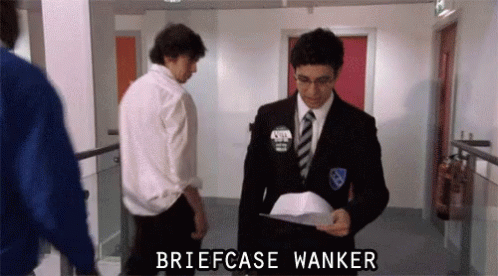The Junior Lawyers Division has sent a scathing email to the SRA stating that it has lost confidence in the regulator's approach to prosecuting junior lawyers.
The JLD's chair, Charlotte Parkinson, penned a letter to the SRA criticising its decision to prosecute Claire Matthews - a junior lawyer who was recently struck off by the Solicitors Disciplinary Tribunal. Matthews had initially lied about losing a briefcase containing sensitive documents on a train, before confessing to her supervisor a week later. The struck off lawyer is now appealing against the SDT's decision with the help of lawyers working pro bono.
In its letter to the SRA, the JLD said it was "alarmed" to read Matthews' account of her mental health in the judgment. The junior lawyer had told the tribunal that after losing the briefcase, she barely ate or slept, and attempted to take her own life by drinking bleach.
The JLD was also "remarkably concerned" that the SRA prosecuted "a potentially suicidal person", on the assumption that the regulator knew about Matthews' mental fragility "in advance of the hearing". The JLD said in the "unlikely event" that the SRA only became aware of Matthews' mental state during the hearing, it should have "immediately" called for an adjournment at that stage.

Junior lawyers opine on the SRA's handling of the briefcase matter
This is not the first time the JLD has voiced concerns over the SRA's disciplinary proceedings. It also wrote to the SRA in February last year complaining about its decision to prosecute junior lawyers Sovani James and Emily Scott.
Sovani James appeared before the SDT in 2018 for backdating letters to make it look as though she had progressed a case. The tribunal at her hearing was told that the junior lawyer was too scared to come clean to her bosses, and that she worked in a "toxic and uncaring" firm. The tribunal struck her off.
In the other matter, Emily Scott was struck off after she knowingly overcharged clients, even though the tribunal acknowledged that she "had been deceived, pressured, bullied and manipulated" by the partners.
The JLD said these cases had "shaken" its faith in the SRA, and that it no longer had confidence in the regulator's judgement concerning "junior lawyers who have mental health issues" or those "working in toxic work environments". The JLD requested that the SRA "immediately review" its approach in comparable cases in the future, as well as ongoing cases.
An SRA spokesman told RollOnFriday, "we have received the letter from the JLD and will respond directly to them in due course."
The JLD said it would also write separately to the Solicitors Disciplinary Tribunal to outline its concerns about the "severity" of its decisions in striking off junior lawyers.












Comments
340
355
The culture of fear is real.
289
393
With a great deal of sympathy for those with mental health issues, anyone in the legal profession who lies (repeatedly) to their management should expect not to work in the legal profession for very long.
335
340
This is a failure of management. They should know whether a case is being progressed. They shouldn’t be putting fee pressure on.
it takes a hugely strong prison to say no to partners particularly in your early days
307
390
So "mental health issues" and assertions of working in a "toxic" environment are valid excuses for dishonesty now, are they?
336
360
the SRA has never been any help to any junior staff. I still remember when the financial crisis hit in 2008 and trainees were being shafted left right and centre. All they did was shrug and say "it's the economy, not our fault you're 50K in debt"
Thank fuck the person at (was it Bristows? Burges?) got a coalition together to actually do something in the face of regulatory incompetence and ineptitude.
330
365
I agree that a number of people have overlooked the dishonest element of Matthews.
If she had left a briefcase on a train (which is an accident) and admitted it immediately to the firm then they could have notified the data breach and affected parties. It was the cover up that did her in.
The balancing act is the perceived fear of owning up to a mistake. Some firms are toxic for trainees to work in, whereas others accept mistakes and forgive them. Also there is a need to factor in human preservation and that people will lie to protect themself.
She was dishonest in the early stages of her career. Personally I think strike off was excessive - others have been treated with suspension. If she had been rebuked with a suspension and then had more heavy restrictions on her practicing when she returned then it would have allowed her a second chance.
322
363
I do wonder what JLD would want to be done differently. No prosecutions of anyone with a sign of mental health concerns (often after the initial wrongdoing)? Doesn't seem tenable to me.
Studies have suggested a large proportion of the profession suffer with mental health problems (regardless of age or experience)at various times due to the stress of the job. A great deal of wrongdoing occurs under great stress or pressure. Should those individuals be subject to a lower level sanction?
Toxic environments are a problem and need to be dealt with, but shouldn't excuse misconduct.
327
357
A fish rots from the head.
284
382
Law firm culture remains an issue. Many supervisors sweat the billable hours out of people and treat them poorly. If an issue arises they simply suggest a call to LawCare. This is not treating the problem; it is simply trying to take the edge off the consequences of the problem they've created.
Agree with the poster above that mental health issues are not an excuse to prevent a prosecution by the SRA. It is however something that needs to be taken into account in the punishment stage. I doubt someone wants to admit they are suicidal in a public forum so I do feel sorry for Matthews. She needed to be punished for what she did - it was dishonest - but a suspension and a "yellow card" was more appropriate.
The decision by the SDT fell within their discretion so I am not convinced she will have much success in appealing their decision but I wish her and her kind pro bono team all the best.
308
389
Appreciate it isn't a competition, but I would say that in my experience this isn't a problem limited to private practice. Too often senior lawyers are terrible managers having been promoted purely on the basis of metrics disconnected from their ability to develop a strong, healthy and high-performing team environment.
Anaemic HR functions that suffer from competing priorities, leaving problems widely known but unaddressed, persist throughout the City.
309
390
Whilst (there but for the grace of God and all that) I never found myself in the same scenario, this has stirred up all sorts of memories.
When I was a trainee I was going through all sorts of mental health issues. I behaved generally like an utter duck and lied about all sorts of things (though thankfully nothing client-related), including to my employers. Facing the truth, or the consequences of the truth (which, when depressed, your dark imaginings will always extrapolate into extreme worst-case scenarios) would have just been beyond me.
I was just very lucky that I wasn’t in a face-the-regulator scenario before I managed to drag myself back up. My career never set the world alight, but I went on to do pretty well and be a moderately-successful partner for several years before switching careers.
There’s obviously a balance to be struck, and the need to protect clients and the integrity of the profession (stop laughing at the back there) can’t be ignored, but a bit of understanding, compassion and even circumstantial lenience wouldn’t go amiss - killing the dreams of a junior lawyer with the potential for redemption and a strong career could literally end up killing them.
315
373
The SRA are inconsistent with their decision making process. The problem with harsh sanctions is that there will be a temptation for a decision maker to ignore an act of 'relatively' minor dishonesty knowing the outcome and therefore allege something different eg lack of integrity or not even prosecute. There are a number of published cases where the issue of dishonesty has not pleaded and most are cases that impact on clients unlike this case and we do not even know about the cases that were not taken forward or dealt with by way of an unpublished decision. The issue in this case is not the behaviour but the punishment.
272
395
@10:15
Agree with you. It's the Peter Principle. If anyone has completed the SRA Management Courses 1 and 2 then upon completion of those 12 hours of CPD that makes them qualified as a manager (highest tier).
Compare that with other industries and you will see they frequently send people to Harvard and London School of Economics to complete MBA's and leadership courses - often tailored to their industry. So many other industries are better at management and supervision.
Here is a little tip to trainees about career progression - if you have an ability to bring in money through clients then you will be just fine. If you don't have a book of portable clients then make sure you are non-threatening to your superiors and brown nose. Don't try and "keep it real" because you will be stuck in associate purgatory.
281
379
So "mental health issues" and assertions of working in a "toxic" environment are valid excuses for dishonesty now, are they?
No. They are an explanation for behaviour that otherwise may not have occurred. Hope that helps. (Love the use of inverted commas by the way)
349
359
There was a case a few years ago about a more senior female lawyer backdating a document which was arguably more serious as this involved misleading the court. She raised medical conditions as a mitigating factor and was not struck off. She’s now a partner somewhere and no doubt had learned the lesson. Very hard to see how the recent case is worse than this one, in which event the SDT’s decision is not fair.
Except the older case was under the old code of conduct. Does the SRA now refuse to allow medical evidence for cases of misconduct? If so it needs to be clear on its position.
298
384
The question on mental health seems to be on of causation. If the mental health issue caused or materially contributed to the misconduct, this appears to be a mitigation factor which may well save someone from strike off. If the mental health issue is not connected or arises or is aggravated by the misconduct itself (as the sad case here appears to show) then it is not causative of the misconduct and I can see why the SRA would not want to set a precedent.
324
391
I complained to SRA last year about some dishonest behaviour from senior management at a magic circle firm. They did not investigate it and would not consider the evidence. They allowed the firm’s management to self certify there had been no dishonesty even though the evidence was clear. I guess they were not such easy prey for the SRA as a troubled junior lawyer.
288
393
Yet senior lawyers in a firm shred vital documents they knew were important before an Inquiry and got let off.
326
373
It's the lack of consistency that gets me: it seems that the SRA hold junior lawyers to a higher standard than partners and are willing to ignore evidence of toxic work environments. In some cases the SRA should be looking at where poor management is endangering the profession. But then again I've never expected the SRA to do their actual job.
286
428
Criticism of the SRA and SDT is fine but we are overlooking another culprit. The courts have consistency, and at the highest levels, upheld the principle that almost any form of dishonesty by a solicitor requires the solicitor to be struck off. You can read a summary of the case law here - https://www.bailii.org/ew/cases/EWHC/Admin/2018/3058.html and https://www.bailii.org/ew/cases/EWCA/Civ/1993/32.html
It is clear that the aggressive approach of the SDT and SRA flow from the hardline principles developed in the courts.
307
387
Much as I sympathise with Ms Edwards, I think a number of commentators are missing the point. A long time ago, when I was still a solicitor (and, by a massive coincidence, working for the same firm and the same client), I too accidentally left a briefcase containing an SRA file on a train. I told the head of my department and the client straight away. Both were understanding and I retrieved the briefcase and file from lost property at Waterloo a couple of days later. There were no consequences for my career, nor in fact did that thought ever cross my mind, though I was certainly very embarrassed and stressed at the time. You might argue that I wasn’t suffering from any pre-existing mental illness and was confident enough to confess, but in my mind, there was no other way. As so often in misconduct, it’s not the mistake, but the cover up.
383
398
It doesn't seem right that solicitors are subject to a much more stringent regulatory regime and punishment than comparable jobs/professions i.e. the Bar and accountants.
It's not just the JLD who has lost confidence in the SRA I would say it's most of the profession at all levels. Not just in respect of what would seem to be disproportionate punishment in the cited cases (were I think most agree punishments are needed but that the level of penalty goes OTT) but also the woefully inadequate and slow response by them in giving the profession guidance relating to the Covid 19 crisis. Plus the slap on the wrists only given to Capsticks in the Claire Matthews case which most of us who've read it think shows different people and firms are regulated differently by them.
Whilst it would not achieve anything I am pretty sure if the Law Society (say on pressure from the JLD) called a vote of no confidence in the SRA (which they won't) it would be carried by a fairly clear majority.
294
393
@Phoenix Wright. Unfortunately, the explanations for the dishonesty are utterly, utterly irrelevant. The dishonesty is all and it is a disqualification matter and the SRA has no discretion - the case law makes that clear.
I am sorry for her but that is the way it is, and that is the way it should be. Clients and third parties are entitled to have confidence in solicitors' integrity. Saying "my personal circumstances/intense stress/medical condition made me lie to you repeatedly" is not good enough.
The ersatz indicate that the assertion was (at least in the reporting" entirely unparticularised. But frankly, even if it had been, it would have been irrelevant, as would any medical condition or personal circumstance.
309
382
I think one of the issues here is the use of the term dishonest / dishonesty.
Most practitioners view dishonesty through the prism of the criminal law i.e. theft or fraud e.g helping youself to the client account. Telling fibs to your employer re: a brief case that has gone walkabout does not trigger the same level of concern among most.
So while claire should have faced sanction before the SDT the level of sanction here appears excessive. We shall to see what the Courts think.
326
404
@ Anonymous 15 May 20 12:41
The point is the extent to which mental illness causes or contributes to the misconduct act in question. Your example doesn’t apply because you didn’t have any health condition. If a condition is so severe that it impedes judgment / sense of reality / intention then that may be a mitigating factor, taken together with all the facts. This is the issue - where at the margins the line is drawn. No one would argue that someone who is of sound mind that lies and covers up losing client information shouldn’t be struck off but the issue comes where that person says they did it as a result of it arising from serious mental health issues in which case should they be in the profession at all?
304
360
@ Gobblepig 15 May 20 13:21
You’re asserting your particular view but it’s not the current regulatory position. There have been examples where medical conditions that are materially relevant to one off instances of misconduct with limited harm, immediate confessions and so on do not lead to strike off. You refer to case law so you should appreciate that dishonesty requires evidence of a mental element and intent - which a medical condition such as extreme depression or anxiety may prevent the defendant from possessing at the time the event took place.
314
401
This is a question for experts psychiatrists more than lawyers:
Did her mental health issues materially cause her to absent mindedly forget her briefcase on the train? Or was her mental health negatively affected as a consequence of her getting into trouble with her firm and regulator?
I will not hazard a guess as I am a desk jockey law monkey with no expertise in the area of mental health.
297
379
@Anon you've done a good job there of starting off by talking about examples of "misconduct", and then wandering off into general assertion and how things "may" be relevant when considering dishonesty, and put that all forward as the "current regulatory position". 2/10.
308
365
I am a regulatory lawyer and the panels I have appeared before over the years have seemed very interested indeed in the explanation for alleged dishonesty. Maybe they were just pretending? Indeed one might ask if there is no discretion in the matter why hold a hearing at all.
You seem to think it's irrelevant however. I can only say that is contrary to my experience in representing those who face misconduct allegations.
350
394
JLA should be more concerned about the teaching of legal ethics. Backdating documents and lying to bosses is 100% a no-no. It should be drilled in from day 1 that it's not the mistake that gets you, it's the cover up.
328
397
You've all missed the bigger crime.
The briefcase in and of itself is the bigger crime. In 2020, the act of carrying one of these "oh look at me, I'm a lawyer now" status symbols should carry a custodial sentence of no less than ten years.
Did she also misplace her Filofax and electronic typewriter?
323
368
Gobblepig 15 May 20 15:26
Nope, you’ve misunderstood. You claim that explanations for dishonesty are irrelevant and I’ve explained that where medical evidence shows that this was a material cause of the act or omission, it’s taken into account both in the case law and the SDT’s approach. Do wise up before pontificating.
292
361
At the SRA, we have a saying.
It goes, “Seniority seniority seniority seniority seniority seniority seniority seniority seniority white male white male white male white male seniority seniority seniority seniority seniority seniority come in here and close the door insect you're finished insect now get out seniority more seniority more seniority more white males more white males more seniority more seniority more more more more more more more.”
It sees to work very well for us.
305
363
Totally agree with
286
383
About 1/3 of people who get dealt with as suspects / defendants in the criminal justice system have some sort of mental health issue.
We can't stop prosecuting people just because of this. And I don't see why the SDT should be any different.
350
379
The rules may be being applied inconsistently, but she did lie. Mental health issues or not, she deserved to be struck off. The SDT has no case to answer here.
336
379
Is the issue here consistency of punishment or severity of punishment? I'm not sure anymore.
Are there examples of other solicitors doing similar things and not being struck off? Or do those fighting her corner simply not understand why solicitors and barristers have to tell the truth.
293
387
The SRA would do better if it investigated the abuse inflicted on associates and support staff during the pandemic by greedy and shady partners, not to mention the outrageously false information certain firms are dishing out about themselves. I’ve been a stealth layoff (and am aware of several others) at a notorious US firm.
305
391
The point isn’t that people should not be prosecuted. The point is the extent to which mental health issues are a mitigating factor and should reflect the sentence of sanction. Just as mitigation is relevant in criminal trials.
390
423
What a mess! NQ solicitor weeks into the job for some reason handed ‘urgent’ application to draft with one business day before a bank hol weekend whilst moving house. Partner in team knew about mental health history & knew she was taking work home as was loaned bag to put volume of papers in. Judgment shows client was SRA involving sensitive personal data breach issues. Also notes NQ didn’t have work laptop so firm knew she’d have to use unsecured personal account.
NQ fell asleep on train & left briefcase on train. It was never found but there was also no actual loss. Documents in there were documents which would be on the Court file anyway.
Yes, the NQ lied and yes that’s an issue, but in the circumstances it isn’t fair that all the blame rests with her.
303
345
To “another junior lawyer” on 15 May: it depends how much of a value you put on having every single incidence of minor professional wrongdoing prosecuted to the full extent of the law’s letter.
Would anyone, anywhere, care if no junior solicitor were every prosecuted for lying about the care she’d taken of a colleague’s briefcase, ever again anywhere in any circumstances? Would they.
326
387
I prosecuted a few cases for the SRA after working at the CPS in the early years of my career. I always found them to be very reasonable.
When it comes to dishonesty the consequences need to be severe, regardless of why the dishonesty has arisen. Sometimes dishonesty can be benevolent, but even then I think it needs to be met with a severe response. The role of the profession depends on our trustworthiness: it is the very reason why lawyers can take affidavits, witness documents etc.
That said, when it comes to junior lawyers I think there is room for compassion. Cases like this scream of poor judgment rather than fundamental dishonesty. Suspension would be appropriate.
291
380
The question of loss isn’t determinative in the regulatory world - the SRA isn’t bringing a civil claim.
I think the firm can’t be blamed for expecting and trusting a solicitor to take care of documents and then, if they are lost, to be honest and report them missing. She didn’t do it to protect herself, when her duty to the client was clear. The only relevant issue as set out above is whether her mental illness was a material causative factor in her “dishonesty” such that she couldn’t form the mental intent. That is a question for medical evidence.
314
400
Do the people who are saying she deserved to be struck off really think this couldn't have been dealt with via suspension followed by restrictions / monitoring?
Disappointing and concerning to see the number of people in the legal profession that do not appear to believe in rehabilitation / second chances.
319
405
The SRA is clear that dishonesty especially relating to clients will not be tolerated. I’m afraid that losing documents isn’t the issue - it’s the lies to protect the individual that are the problem when she should have immediately told her firm, let alone refrained from withholding the truth. To have a lesser sanction than strike off sends out the message that lying about client matters is not serious.
The only issue that does need to be determined and on which I suspect her appeal will be based is whether her mental health issues were such that she effectively didn’t know what she was doing when she didn’t tell the truth and therefore where this means that she didn’t intend to be dishonest. Or whether the mental health issues relate to her reaction to having been found out and therefore are not linked to the misconduct. That is a matter for expert medical opinion, not an internet forum. She may have some chance of a less severe sanction if the expert evidence shows she was incapable of forming a view or intending to deceive.
317
403
@16:38
An overwhelming amount of the keyboard warriors on here are clearly not solicitors and or/ failed law students who now work as paralegals or in HR. They are bitter and consequently judge harsher. They also have no clue what it is like to be an NQ.
362
389
A key point no one has addressed yet is that she represented herself in front of the SDT. Someone with no or virtually no experience as an NQ, up against experienced counsel, must raise questions about the access to justice and fairness of the procedure. Assume she couldn’t afford to pay costs of representation. But the old adage applies - “a solicitor who acts for themselves has a fool for a client”. How could she possibly have put her best case forwards given her lack of experience, advocacy and being so emotionally close to this as well having mental health issues??
269
380
More often a party representing themselves has a fool for a judge sadly!
363
380
The tribunal aren’t judges and they can only assess the merits of the arguments and evidence put before them. There should be legal aid available for people whose careers are on the line. An NQ solicitor simply doesn’t have the experience of this kind of thing. And if she has mental health issues it’s doubly unfair on her.
333
355
The tribunal very much are judges here.
326
337
Law Gazette article provides us with the bare facts regarding another individual:
https://www.lawgazette.co.uk/news/manchester-paralegal-banned-for-stealing-294000-from-firm/5104286.article
We can deduce: (1) Not a solicitor (2) Long period of dishonesty and (3) No mitigating circumstances mentioned.
Without wanting to pre-judge/influence procedural fairness, if this individual is not permitted to be employed by any law firm ever again, I suspect many commenters on this thread would agree with that decision.
In the absence of similar facts in the 'briefcase' matter, is it right that that individual should be struck off, or would a suspension/opportunity for rehabilitation been more appropriate?
283
368
They do not hold the role of judge. They are tribunal members. Not members of the judiciary. There is a difference.
340
353
@ On the other hand ... 21 May 20 09:15
You are comparing apples and oranges.
The facts of this case are simple. This lady chose to be dishonest to protect herself from professional damage. It is a fundamental principle that solicitors are honest and trustworthy. If they are not then the whole system is undermined and the public will rightly lose confidence in it. She cannot be allowed to continue to practice. It really is as straightforward as that.
If she had admitted her mistake then her firm would have been annoyed, she might have received some sanction or even dismissal (although I think this highly unlikely). Who knows? But she would not have been in front of the SRA. Every solicitor has made a similar mistake at some point. That's why they have professional indemnity insurance. There are regular posters on this site who have admitted to worse mistakes than this and are now in senior positions. Because they didn't lie. If you want to work in the law, if you want to be an officer of the court, if you are concerned with the administration of justice, then you cannot lie.
312
333
Lol @ BLM
346
359
They're judges because they're sitting in judgement 10.12. Where does it say they're members of the judiciary?
284
366
“This lady chose to be dishonest”
If she was different from acute mental health issues which meant she was unable to form the intention to deceive, then you’re wrong. And this is issue is one for medical evidence and her appeal, not some armchair warrior who considers they are the ultimate authority on an issue they clearly don’t understand.
277
358
At the risk of referring to legal principles set down by the Supreme Court, the test for dishonesty is Ivey v Genting Casinos (UK) Ltd [2017] UKSC 67, which applies to all forms of legal proceedings. It is clear that there is a subjective element that must be met.
“When dishonesty is in question the fact-finding tribunal must first ascertain (subjectively) the actual state of the individual’s knowledge or belief as to the facts. The reasonableness or otherwise of his belief is a matter of evidence (often in practice determinative) going to whether he held the belief, but it is not an additional requirement that his belief must be reasonable; the question is whether it is genuinely held. When once his actual state of mind as to knowledge or belief as to facts is established, the question whether his conduct was honest or dishonest is to be determined by the fact-finder by applying the (objective) standards of ordinary decent people. There is no requirement that the defendant must appreciate that what he has done is, by those standards, dishonest”.
291
414
@13.59.
'... which means she was unable to form the intention to deceive, then you're wrong ...'
No. She lied. She got caught. It really is that simple. And if were true that she was momentarily unable to form the intention to deceive (lol) then she should never have been admitted.
355
416
You keep saying she lied but you don’t apply any legal principles to the issue, which is what the Tribunal must do because there is something called “the rule of law” and “precedent” and “the Supreme Court ” (and something called “the Internet” and “books” where you can look up what these words mean). As has been set out above, the test for dishonesty includes a subjective element and this goes to mental state and comprehension. It simply isn’t as black and white as you claim. This is the law and the necessary test as set out by the Supreme Court as it stands. What you might think about what the test for dishonesty is all very interesting but it is not the position under the law. It is therefore irrelevant.
289
416
@15.29
You can bang that big, vacuous drum for as long as you like but it won't make any difference to the outcome here. Indeed, your attempt to muddy this water - where it ought not to be muddied - could lead to material, long-term implications for the legal profession. If it were necessary to take every actual and/or perceived modern illness into consideration in such cases, where the facts are clear and the crime admitted to, nobody would ever got thrown out. Grow the fu*k up.
263
379
Can you link to or copy and paste the legal principles of she lied or the precedents and rule of law so you can show us what these words mean. You've used a lot of words but I'm not convinced you know what you're talking about.
I certainly don't.
So enlighten us. Otherwise you're just holding a pity party and no-one else wants to turn up. Sure, I feel sorry for her but because she shouldn't have become a lawyer in the first place.